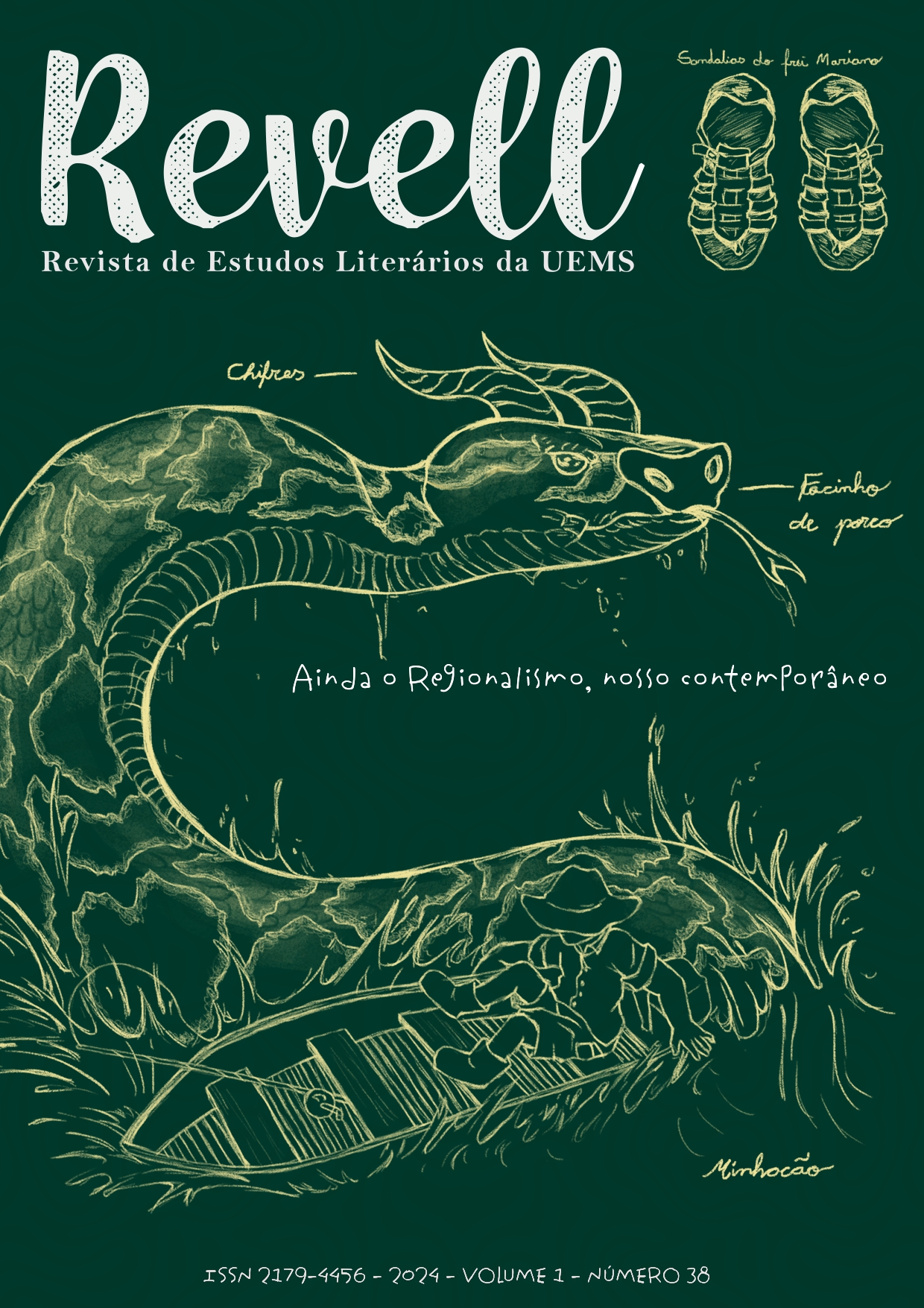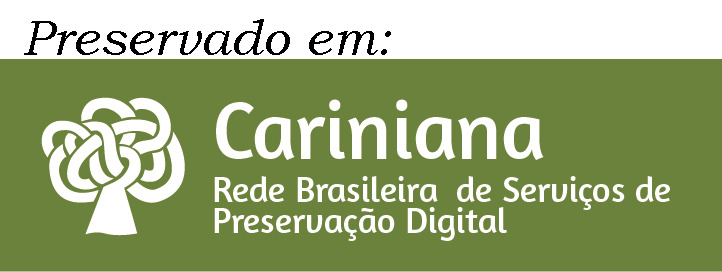From “third-person knowledge” to self-writing
the representation of the black men in Bom Crioulo (1895) and Memories of the scrivener Isaías Caminha (1909)
DOI:
https://doi.org/10.61389/revell.v2i38.7202Keywords:
Representation, Authorship, Character, Brazilian black menAbstract
During Brazilian Realism-Naturalism, at the turn of the 19th to the 20th century, black people enter the fiction narratives as relevant prominent characters, as is the case in Bom Crioulo (1895), by Adolfo Caminha, and Memories of the scrivener Isaías Caminha (1909), by Lima Barreto. About the protagonist, a social place in the margins can be highlighted, strained by the racial context, which is common to both. From this perspective, this paper aims to observe the representation of these characters, in a line of reasoning that outlines the elements of the composition of these fictional beings. Thus, there is the analysis of the structure that shapes Amaro and Isaías Caminha, the first character, a black sailor man invented by the white author Adolfo Caminha, and the second one, a scrivener, also black, created by the black author Lima Barreto. According to this, this analysis, the racial place of enunciation of the authors towards their creations is discussed, which leads us to reflect on the place of representation to which the characters are relegated, between object and subject (PROENÇA FILHO, 2004), meanwhile, a certain distance or a certain approximation is perceived when it comes to the existence and the (re)knowledge narrated in third person or first person of a black man (FANON, 2008).
References
AZEVEDO, Sânzio. Adolfo Caminha e o Naturalismo. O eixo e a roda, Belo Horizonte, v. 14, p. 85-93, 2007. Disponível: http://www.periodicos.letras.ufmg.br/index.php/o_eixo_ea_roda/article/view/3243. Acessado: 02 ago. 2021.
BARRETO, Lima. Recordações do escrivão Isaías Caminha. São Paulo: Penguin Classics Companhia das Letras, 2010.
BEZERRA, Carlos Eduardo de Oliveira. Adolfo Caminha: um polígrafo na literatura brasileira do século XIX (1885-1897). São Paulo: Cultura Acadêmica, 2009.
CAMINHA, Adolfo. O Bom crioulo. [S.l.]: Fundação Biblioteca Nacional. Disponível: http://objdigital.bn.br/Acervo_Digital/livros_eletronicos/bom_crioulo2.pdf. Acessado: 5 jun. 2021.
CANDIDO, Antonio. A personagem de ficção. In: CANDIDO, Antonio et. al. A personagem de ficção. São Paulo: Perspectiva, 2014.
CUTI. Literatura negro-brasileira. São Paulo: Selo Negro, 2010.
EVARISTO, Conceição. A escrevivência e seus subtextos. In: DUARTE, Constância Lima; NUNES, Isabella Rosado (orgs.). Escrevivência: a escrita de nós: reflexões sobre a obra de Conceição Evaristo. 1. ed. Rio de Janeiro: Mina Comunicação e Arte, 2020.
FANON, Frantz. Pele negra, máscaras brancas. Trad.: Renato da Silveira. Salvador: Edufba, 2008.
HOWES, Robert. Raça e sexualidade transgressiva em Bom-Crioulo de Adolfo Caminha. Graphos, v. 7, n. 2/1, p. 171-190, 2005. Disponível: https://periodicos.ufpb.br/index.php/graphos/article/view/9459#:~:text=Bom%2DCrioulo%2C%20de%20Adolfo%20Caminha,Marinho%20da%20Cruz%20em%20Portugal. Acessado: 02 ago. 2021.
PROENÇA FILHO, Domício. A trajetória do negro na literatura brasileira. Estudos Avançados. [S. l.], v. 18, n. 50, p. 161-193, 2004. Disponível: https://www.revistas.usp.br/eav/article/view/9980. Acessado: 15 mai. 2021.
RAMOS, Alberto Guerreiro. Introdução crítica à sociologia brasileira. Rio de Janeiro: Editora UFRJ, 1995.
REIS, Maria Firmina dos. Úrsula. 6. ed. Belo Horizonte: Editora PUC Minas, 2017.
WILLIAMS, Raymond. Cultura e Materialismo. Trad.: André Glaser. São Paulo: Editora Unesp, 2011.
Downloads
Published
How to Cite
Issue
Section
License
Copyright (c) 2024 REVELL - UEMS JOURNAL OF LITERARY STUDIES

This work is licensed under a Creative Commons Attribution 4.0 International License.
DECLARAÇÃO DE ORIGINALIDADE E EXCLUSIVIDADE E CESSÃO DE DIREITOS AUTORAIS
Declaro que o presente artigo é original e não foi submetido à publicação em qualquer outro periódico nacional ou internacional, quer seja em parte ou na íntegra. Declaro, ainda, que após publicado pela REVELL, ele jamais será submetido a outro periódico. Também tenho ciência que a submissão dos originais à REVELL - Revista de Estudos Literários da UEMS implica transferência dos direitos autorais da publicação digital. A não observância desse compromisso submeterá o infrator a sanções e penas previstas na Lei de Proteção de Direitos Autorais (nº 9610, de 19/02/98).




















